By: RICHA SHARMA
As an active volunteer working with many organizations dedicated to women’s empowerment, I am deeply committed to addressing the myriad challenges women face worldwide. From financial constraints to nutritional disparities, literacy gaps, and persistent gender inequalities, women’s path to empowerment is often fraught with obstacles. Today, I will focus on five critical areas of concern and propose actionable solutions to empower women and foster a more equitable world.
Bridging the Financial Gap
Despite significant progress, women continue to face a stark financial disadvantage. Globally, women are 70% more likely than men to live in extreme poverty. This financial disparity stems from various factors, including unequal access to education, employment opportunities, and financial services.

To address this challenge, we must promote financial literacy among women, equipping them with the knowledge and skills to manage their finances effectively, make informed decisions, and plan for the future. We must also expand access to financial services, breaking down barriers to financial inclusion by providing women with access to bank accounts, loans, and other financial services.
Supporting women-owned businesses is another crucial step towards bridging the financial gap. By fostering entrepreneurship and providing women-owned businesses with access to capital, training, and mentorship opportunities, we can empower them to achieve financial independence and contribute to economic growth.
Advocating for equal pay is essential to eliminating the gender pay gap. Enforcing equal pay laws, promoting wage transparency, and addressing unconscious gender bias in workplaces are critical steps toward ensuring that women are compensated fairly for their work.
Finally, we must strengthen social safety nets to alleviate women’s financial burdens. Comprehensive social safety nets, including childcare support, parental leave policies, and access to affordable healthcare, can provide women with the support they need to balance work and family responsibilities and achieve their full potential.
“Women are inbuilt financial solution providers and investors; we must empower their skills.”
Nourishing the Body and Mind
Women’s nutritional status is often overlooked, yet it plays a crucial role in their overall health, well-being, and productivity. Globally, nearly 2 billion women suffer from anemia, a condition caused by iron deficiency that can lead to fatigue, weakness, and impaired cognitive function.
Women usually tend to prioritize their family and often become careless towards their own needs. Raising awareness about their importance and encouraging their inclusion in women’s diets.
Addressing micronutrient deficiencies, such as vitamin A and zinc, through supplementation and dietary diversification programs is also essential. Supporting women’s participation in agriculture, and providing them with access to land, resources, and training to cultivate nutritious crops, can also enhance their nutritional status.
My Mother says– “You eat medicines, you eat alone, you eat nutritious food, you feed the whole family”
Prioritizing maternal and child nutrition programs, including prenatal care, breastfeeding support, and complementary feeding education, is crucial for promoting healthy growth and development in women and children.
Finally, addressing gender-based discrimination in food allocation is essential to ensure that women have equal access to nutritious food. By dismantling discriminatory practices and promoting gender equality, we can ensure that women are not disproportionately affected by food insecurity.
Unlocking the Power of Knowledge
Literacy is an essential tool for empowerment, enabling women to make informed decisions, gain access to information, and participate meaningfully in society. Yet, globally, 617 million adult women lack basic literacy skills.

To address this challenge, we must ensure that all girls have access to quality primary and secondary education, particularly in marginalized communities. Providing non-formal education opportunities for women who missed out on schooling, including literacy programs, skills training, and vocational education, is also crucial.
Utilizing technology to enhance literacy learning, such as mobile-based literacy apps and digital literacy programs, can further expand access to education and literacy skills.
Nurturing a culture of reading by providing access to libraries, establishing book clubs, and organizing reading events can foster a love of reading and promote literacy among women.
Finally, empowering women as educators and literacy instructors can enable them to share their knowledge and skills with others, creating a ripple effect of literacy empowerment.
There is an Indian Saying– “When a man is literate, only he is literate. But when a woman is literate, She literates three generations. (parents, in-laws, and kids)”
Dismantling Gender Stereotypes
Despite progress, gender stereotypes continue to permeate societies, limiting women’s opportunities and perpetuating discrimination. These stereotypes often reinforce gender roles that confine women to domestic spheres and limit their participation in leadership roles.
Often women have career gaps due to their marriage or pregnancy. It does not stop here, even after giving birth, women are given full responsibility to provide emotional support to the child and take care of them, be available for them, and help them full time to become good people.
Though there are multiple initiatives are there such as maternity leave, and babysitting facilities at the office, it is necessary to reevaluate the mindset of people to help women make an impact in the world. The role of men also needs to be redefined from financial supporter to life partner for a woman and available father for kids.
“Women are multitasking and emotionally strong, does not mean they should do it all alone”.
To challenge these harmful stereotypes, we must raise awareness about their negative impacts and promote gender equality through public awareness campaigns, media engagement, and educational programs.
Connect with RICHA SHARMA via
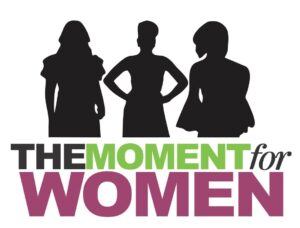

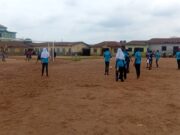
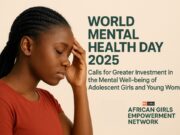
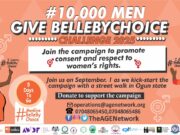









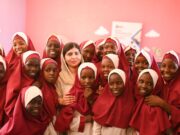
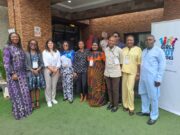

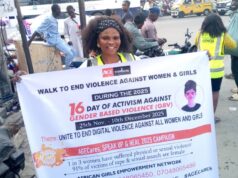





Women empowerment is way more necessary for the overall progression of our country, but our society is still so behind in understanding this.